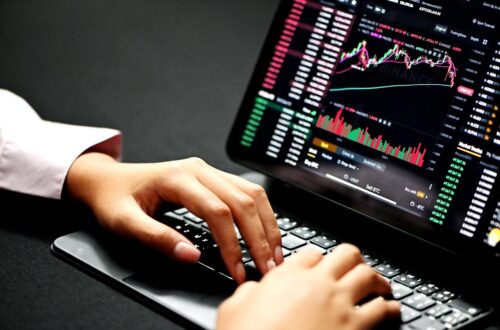When you purchase or sell a contract for difference (CFD), you agree to swap the price difference between an asset when your position is opened and when it is closed. We’ll go over some of the primary features of CFD trading, such as leverage, short selling, and hedging, and why they’re so appealing to traders.
Why trade CFDs?
CFD trading is a derivatives market, which means you trade prices generated from the underlying market rather than the actual market itself. It’s a popular trading method since it allows traders to:
- Leverage
Since you just have to deposit a percentage of the whole value of your trade to create a position with CFDs, your investment capital may go further. Margin is the amount of money you’ll have to put down as a deposit.
The amount you’ll need to deposit is determined by the size of your position and the margin factor for the market you’ve chosen.
So, if Commonwealth Bank’s margin factor is 5%, your margin would be 5% of your total trading exposure, so a position worth A$1000 (50 share CFDs x $20 per share CFD = $1000) could only require a deposit of A$50.
It’s vital to keep in mind, though, that your ultimate profit or loss is determined by the entire amount of your position, not your deposit.
- Going Short or Long
A CFD transaction is more flexible than other types of trading since it involves an agreement to swap the difference between your position’s initial and closing prices. This enables you to trade on markets that are trending both up and down.
You’ll notice two prices posted when trading CFDs on a dealing platform: the purchase price and the sale price. If you believe the market will rise in price, you trade at the purchase price, and if you believe the market will fall in price, you trade at the sell price.
- Trade a wide range of marketplaces
You may trade over 17,000 markets using contracts for difference, including stocks, indices, commodities, currency, cryptocurrencies, options, and more. You also don’t need to use several platforms to trade various marketplaces. Everything is accessible with a single login, no matter where you are – you may trade using your computer browser, phone, or tablet.
To take advantage of corporate announcements, you may even trade various markets outside of trading hours. Keep in mind that the market’s opening price and out-of-hours pricing may fluctuate.
- The underlying market’s similarity
CFDs are meant to closely resemble the trading environment of their underlying market. Purchasing an Apple share CFD, for example, is the same as purchasing a single Apple share; if you wish to purchase the equivalent of 2000 Apple shares, you would purchase 2000 Apple share CFDs. When trading share CFDs, however, your positions will be updated to account for any dividend distributions, and you will not be granted shareholder privileges.
Purchasing and selling a forex CFD, on the other hand, is the same as purchasing a certain amount of base currency and selling the same amount of quote currency. Buying a single GBP/USD CFD would provide you with the same exposure as purchasing £100,000 in US dollars
- Taking precautions with your stock portfolio
Let’s say you own a large number of HSBC shares and want to hold them for a long time. You feel the banking sector is about to undergo a slump, and you want to use CFDs to mitigate any possible losses. As a result, you take a short position.
If you are accurate and the value of your HSBC shares drops, your CFD position will benefit, compensating your loss. If the value of your HSBC shares rises, you can cancel your CFD position and deduct the loss from future earnings for CGT purposes.
- DMA
You can acquire direct market access if you’re an accomplished trader (DMA). This allows you to view and engage with stock exchange and FX provider order books. Instead of trading at IG’s buy and sell prices, you may view all available bids and offer prices at any moment and trade at the market prices you like.
When you trade using DMA, you don’t have to pay an IG spread; instead, DMA transactions are charged via commission. While it is a strong tool, there is no guarantee that you will discover prices lower than ours, and it is only suggested for experienced traders.





